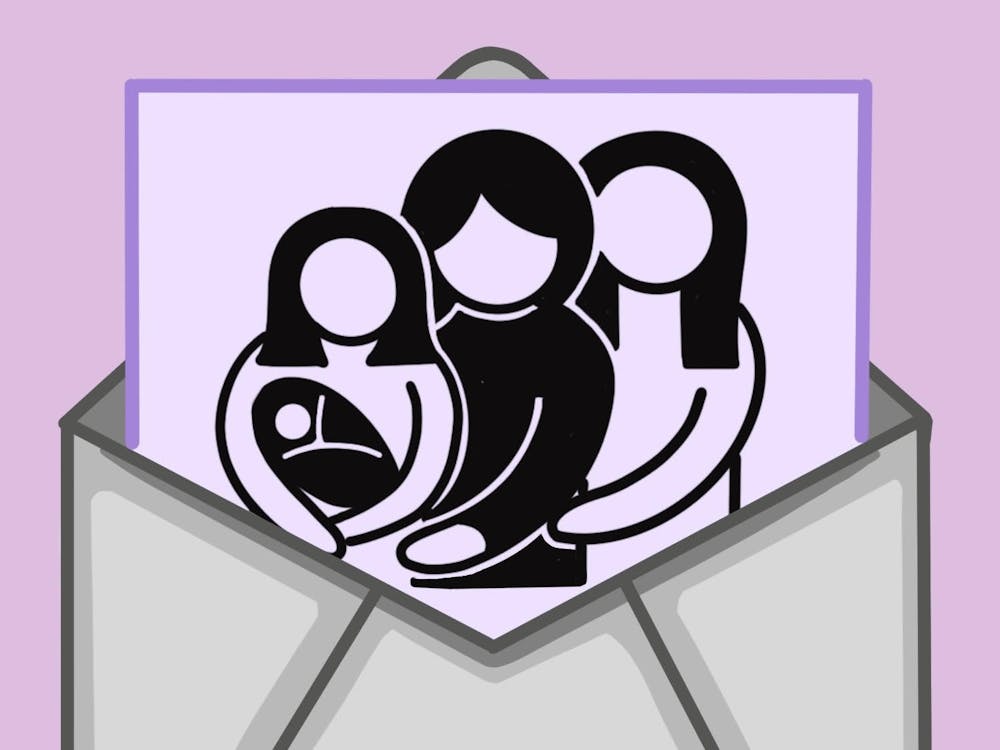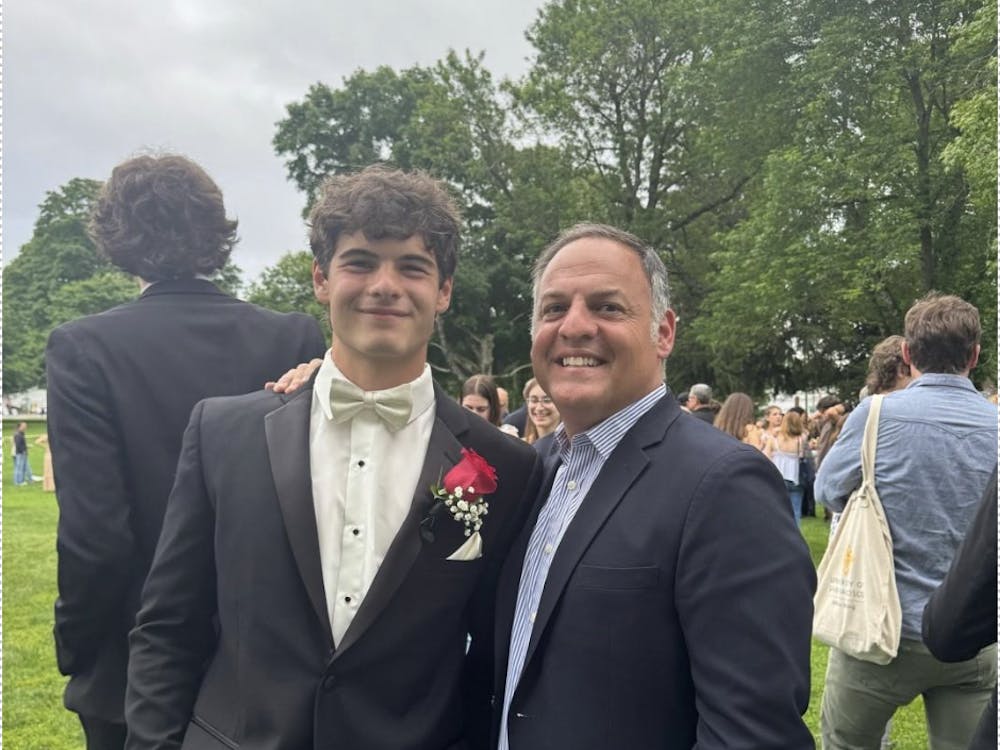
I haven’t always been as well-practiced of a listener as I am now (shout out to A Place to Talk!), but ever since my childhood, I have been sensitive and caring. Empathy came naturally to me. Part of this stems from my family’s history with mental illness. My sister, who is now diagnosed with Borderline Personality Disorder, began exhibiting symptoms of autism and bipolar disorder when she was 13. I was eight at the time.
Back then, I didn’t understand why my mini-mom was still throwing tantrums and obsessively talking about a single topic for years at a time — first it was U2, then manga, then the Swahili language, then the soccer World Cup, then the teachings of a Christianity subgroup called the Ascended Masters — but I loved her regardless.
As the docile youngest daughter, I was the only member of the family with enough patience to listen to my sister’s ramblings, no matter how disassociated or self-absorbed they became. I was her sponge, her vessel. Thus, as the years went by and my sister’s mood swings became more aggressive, paranoid and psychotic — peppered with hateful claims about my parents and threats to join an orphanage — I made it my mission to swallow up all the negativity as well as I could.
During daylight hours, I silently listened and nodded, and then at night, I scribbled out pages of anxiety in the safety of my journals. I feared for the worst, but still I thought that maybe if I loved her hard enough, I could save her. I felt as if it was my God-given mission. Then, when my sister ultimately left home in my senior year of high school, it felt like a personal failure.
Today I am lucky enough to have rebuilt a healthy relationship with my older sister.
Beyond that, I am surrounded by strong bonds (from both family and friends) that consistently bring me joy. There are many incredible people in my life that I feel I can truly confide in. I can tell them every one of my most cringe-worthy secrets and deepest insecurities. For these people, I would do anything. I will be there for them at the drop of a hat.
However, since childhood, I have learned to be much more discerning with how I offer up my empathy. This is still a work in progress. It is in my nature to trust. When I meet people, I am instantly curious. I want to learn about all their quirks, I want to hear about all their silly anecdotes. It is in my nature to seek out new connections.
There’s nothing inherently wrong with this. I think striving for connection is universal, and it is thanks to this curiosity that I am able to find those like-minded people I mentioned above. It is also thanks to this curiosity that I have succeeded as a peer listener for A Place to Talk (APTT).
For APTT, I was trained in my freshman fall by the Counseling Center in mental health first aid, and I also learned active listening skills and crisis intervention. Now I sit in Wolman on Wednesdays from 7 to 9 p.m. in Wolman, and students can drop in to talk with me about their feelings and concerns, no matter how big or small.
In this capacity, I have been able to witness firsthand the value of compassion. By listening attentively and validating feelings, I have caused students who entered the room in a panic to leave in optimism. Truthfully, I can’t thank APTT enough for how it has made me treasure my own empathy.
But before I get too mushy, I need to reassert the opinion I’ve been dancing around: Sometimes, you can be too open. Sometimes, people do not deserve your empathy. In my life, I have experienced or witnessed countless toxic relationships. For me, I have begun to feel it is almost inevitable. Because I have lots of history with mental health and because I tend towards bleeding-heart compassion, I attract damaged people like moths to a street lamp (according to my mom).
The relationship model looks something like this. First, you meet someone. It could happen casually with a classmate in your study group, a fellow player on club tennis or someone you volunteer with at the community garden. You talk to this person a few times, slowly becoming acquainted, and he or she opens up to you about something a little personal.
The conversation doesn’t need to get deep. She could just mention her strained relationship with her father, or he could reveal he secretly doesn’t want to be pre-med. You give this person your full attention. It’s not an overdramatic encounter. The conversation might only last 15 minutes, but because you listened, this person feels a bond with you.
He or she gets hooked on that bond. He might find you on Wednesdays at 1:15 p.m. in Levering, because you briefly mentioned once that you eat lunch there. She might text you unnecessary updates on her family drama throughout the night. She might ask you to hang out, study with her or get coffee nearly every day. You might want some space and say no. Still, they persist. They might begin to get angry and possessive. They might guilt you for not making the time that they so rightly deserve. They might claim that you owe them.
That, my friends, is the breaking point. In any relationship, you do not owe anyone anything.
Healthy friendships are dependent on reciprocity — a constant give-and-take, a constant mutual love and support. But if you’re ever in a relationship like the one I described above, please know that it is not healthy and that it is not a relationship you need to continue.
Empathy is a magnificent quality. If you are capable of supporting peers in need or listening to someone who feels alone, that is incredible. You are making a difference. But the burden of empathy is that sometimes people can get addicted to the attention and believe they deserve more than they do. As an empathetic soul who knows all too well the trauma of toxic relationships, I wanted to write this article to tell the world: You should never feel tasked with creating someone else’s happiness. At the end of the day, the priority is you.




